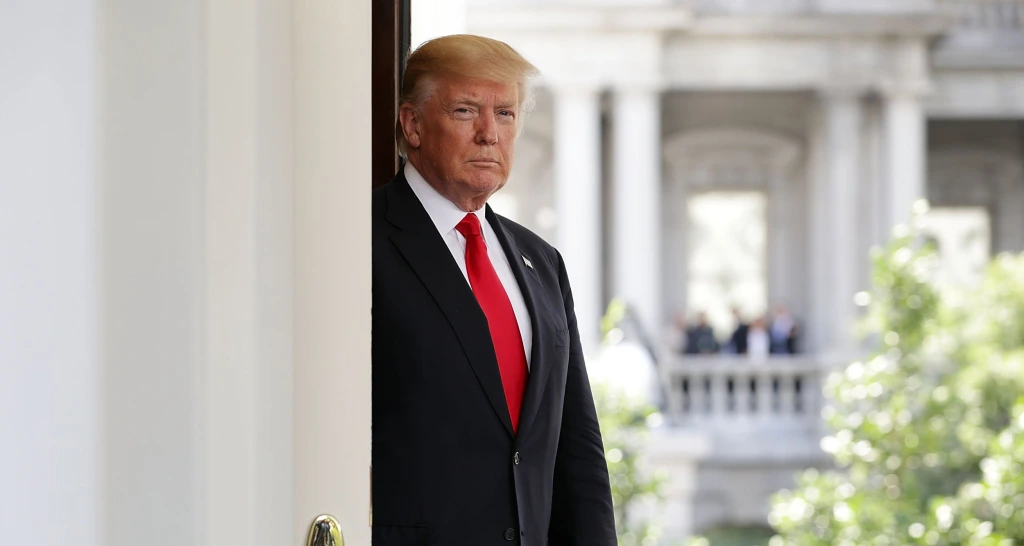When President Donald Trump first withdrew the U.S. from the Paris Agreement in May 2017, 30 prominent CEOs from companies such as 3M and The Walt Disney Co. publicly urged him to reconsider. This time, the response has been far more subdued.
“Our business interests are best served by a stable and practical framework facilitating an effective and balanced response to reducing global [greenhouse gas] emissions,” the CEOs stated in their letter dated May 10, 2017. “The Paris Agreement gives us that flexible framework to manage climate change while providing a smooth transition for business.”
However, following Trump’s executive order on January 20 that withdrew the U.S. from the accord for a second time, there has been no comparable collective response—nor does one seem to be in the works, according to representatives from two companies involved in the original effort.
Not Just the Usual Suspects
Trellis contacted 29 of the 30 companies to ask whether they intended to issue a new letter regarding the recent withdrawal. Broad Group, based in China, was excluded as it does not provide a centralized media contact.
The 2017 letter stood out due to the diverse range of industries represented:
- Consumer goods leaders Newell Brands, Procter & Gamble, and Unilever
- Financial and insurance giants Allianz, Bank of America, Citigroup, Goldman Sachs, JPMorgan Chase, and Morgan Stanley
- Food and beverage producers Campbell Soup, Cargill, and Coca-Cola Co.
- Chemical manufacturers Dow Chemical, E.I. DuPont de Nemours, and Solvay
- Fashion brand Kering
- Holding company Virgin Group
- Utility Pacific Gas & Electric
- Technology firm Salesforce
- Electric vehicle manufacturer Tesla
- Media and entertainment conglomerate Walt Disney
- Healthcare and pharmaceutical companies Johnson & Johnson and Royal DSM
- Industrial manufacturers 3M, Broad Group, Corning, Cummins, Dana, General Electric, and Harris Corp.
Of those contacted, three—Harris, JPMorgan, and Morgan Stanley—declined to comment. Representatives from DuPont and Salesforce said they were unaware of any plans for another coordinated letter.

Trump’s Paris Agreement Pullout
Meanwhile, Allianz and Virgin responded with broad statements reaffirming their commitment to previously established emissions reduction strategies.
“These strategies are conceived and implemented over a long-time horizon, and in a way that is not dependent on how administrations change and how political winds may blow,” Allianz stated.
The remaining companies did not respond to multiple inquiries.
A New Era of Silent CEOs
The hesitation to speak out is not unexpected—many companies fear potential backlash from Trump.
Another factor may be a shift in corporate leadership. Since the original letter, 18 of the companies have changed CEOs due to reorganizations, mergers, or strategic shifts.
Some executives who still hold their positions include JPMorgan’s Jamie Dimon, Salesforce’s Marc Benioff, Tesla’s Elon Musk, Virgin’s Richard Branson, and Walt Disney’s Robert Iger.
While corporate silence on climate action is notable, some businesses are still making their stance known. Eleven of the original companies are among the 3,000 signatories of America Is All In, a coalition advocating for the U.S. to cut emissions in half by 2030 and reach net zero by 2050.
These include 3M, Cargill, Coca-Cola, Dow, DuPont, Johnson & Johnson, PG&E, Royal DSM, Salesforce, Tesla, and Unilever.
On January 20, America Is All In issued a statement supporting the Paris Agreement. While no individual companies were directly quoted, the We Mean Business Coalition characterized the U.S. withdrawal as “a disservice to American businesses and people, opening the door for other major economies to attract greater investment and talent.”
